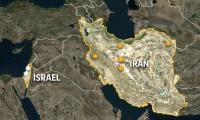Confused energy
The government has continued to give mixed signals about the state of the country’s energy sector. With decisions set to be made around the petrol, gas and electricity sectors, the government has chosen to remain in crisis mode – despite the fact that the decrease in petrol prices will be of relief to citizens. The first surprising news has been the decision to increase, rather than decrease, electricity tariffs. The increase has come after power sector officials briefed the media that they would be looking to cut tariffs this winter. This continues to reinforce the feeling that different parts of the state apparatus are not working in sync. If anything, the government last Thursday approved an increase of tariffs higher than the one allowed by Nepra, apparently to meet the target of adjusting power tariffs quarterly in line with the IMF agreement. This means that the plan to incentivise the use of excess capacity that is left dormant in the winter has been shelved. While even the World Bank has recently admitted that raising tariffs is not the solution to Pakistan’s power sector problems, the government has maintained the same trajectory, which means that it will continue to be dogged by excess capacity payments for dormant power generation capacity.
Moreover, one would have thought that the proposed three percent decrease in petrol prices would be sufficient justification for decreasing electricity tariffs. While the IMF-led governance of the power sector since the 1990s shares responsibility in the state of the sector today, one government after another continues to blindly follow external dictates. In terms of the petrol sector, the distribution of the price cuts shows some thought going into the price cut, where industries and heavy transport will get a bigger benefit. However, one must wait to see what the government decides on the matter.
On the other side, in the gas sector, the government continues to divert expensive RLNG gas to domestic consumers, which has continued to cause a surge in circular debt in the gas sector. Someone needs to answer for the fact that circular debt in the gas sector has continued to rise despite the fact that gas tariffs were massively hiked last year. Here, the government agreement with the IMF was the opposite: it promised not to use LNG to supply domestic consumers given the high cost. So the government continues to play a strange juggling game, none of which is producing better financial outcomes in the power sector. One can only wonder how long such confused policies will continue.
-
 Nvidia’s New Specialized Chip Aims To Accelerate AI Processing Speeds
Nvidia’s New Specialized Chip Aims To Accelerate AI Processing Speeds -
 Demi Moore Was Left With ‘intense’ Illness After ‘The Substance’
Demi Moore Was Left With ‘intense’ Illness After ‘The Substance’ -
 How AI Can Read Your Thoughts Without You Speaking?
How AI Can Read Your Thoughts Without You Speaking? -
 Elon Musk’s Grok Faces Scrutiny From Federal Agencies Amid Pentagon-Anthropic Standoff–Here’s Why
Elon Musk’s Grok Faces Scrutiny From Federal Agencies Amid Pentagon-Anthropic Standoff–Here’s Why -
 ‘I Saw Nothing’: Bill Clinton Denies Knowledge Of Epstein’s Crimes In House Testimony
‘I Saw Nothing’: Bill Clinton Denies Knowledge Of Epstein’s Crimes In House Testimony -
 Jim Carrey Makes Surprising Confession About Rarely Seen Girlfriend Min Ah
Jim Carrey Makes Surprising Confession About Rarely Seen Girlfriend Min Ah -
 How Michael J. Fox Helped Harrison Ford With His Parkinson's Monologue
How Michael J. Fox Helped Harrison Ford With His Parkinson's Monologue -
 AI Safety Battle: Anthropic Fires Back At Pentagon After US Military Flags It ‘supply Chain Risk’
AI Safety Battle: Anthropic Fires Back At Pentagon After US Military Flags It ‘supply Chain Risk’ -
 OKC Vs Nuggets: NBA MVP Shai Gilgeous-Alexander Scores 36 In Fiery Overtime Win
OKC Vs Nuggets: NBA MVP Shai Gilgeous-Alexander Scores 36 In Fiery Overtime Win -
 Eric Dane's Biggest Regret Comes To Light Following Days Of His Death
Eric Dane's Biggest Regret Comes To Light Following Days Of His Death -
 Israel Launches Attack On Iran's Capital And Declares State Of Emergency
Israel Launches Attack On Iran's Capital And Declares State Of Emergency -
 At Least 15 Dead After Military Plane Carrying New Banknotes Plunges Out Of Control In Bolivia
At Least 15 Dead After Military Plane Carrying New Banknotes Plunges Out Of Control In Bolivia -
 OpenAI Partners With Pentagon After Trump Bans Anthropic AI
OpenAI Partners With Pentagon After Trump Bans Anthropic AI -
 Trump Orders Federal Agencies To Stop Using Anthropic AI Tools
Trump Orders Federal Agencies To Stop Using Anthropic AI Tools -
 Shocking Details Emerge In Martin Short’s Daughter Katherine's Death Investigation: 'Kept To Herself'
Shocking Details Emerge In Martin Short’s Daughter Katherine's Death Investigation: 'Kept To Herself' -
 Daniel Serafini Gets Life Without Parole In In-laws Murder And Attempted Murder Case
Daniel Serafini Gets Life Without Parole In In-laws Murder And Attempted Murder Case



